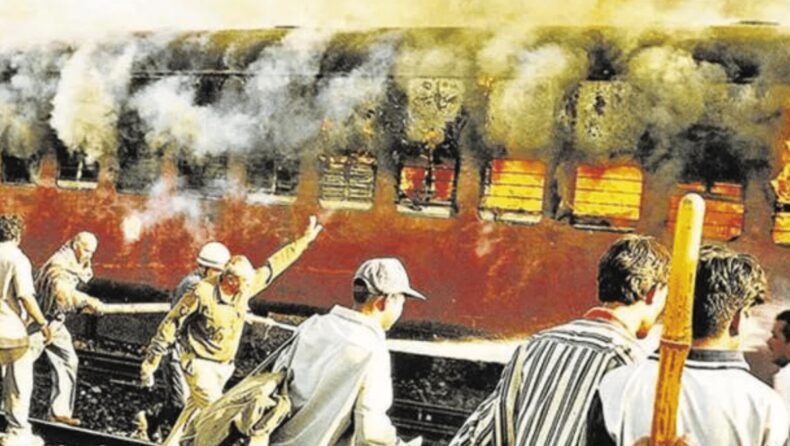The Supreme Court granted bail to eight accused on Friday, who was convicted of life imprisonment in the Godhra case 2002, whereas dismissed the bail application of 4 others.
The Bench comprising Chief Justice of India D.Y. Chandrachud and Justice P.S. Narasimha observed that the accused released on bail were responsible for instigating the mob to throw stones at the train and causing injuries to the people, whereas four people whose bail application was rejected by the Court has committed a serious offence.
The Apex Court while taking into consideration that the accused have gone through the imprisonment of more than 17 years and been in jail since 2004, granted bail to 8 accused stating, “We direct that they be released on bail subject to such terms and conditions as may be imposed by the sessions court”.

The Solicitor General of India said that he had some issues with the other four accused persons because of their role in the incident. He added that an iron pipe was recovered from one of the accused, a Dharia (sickle-shaped weapon) was recovered from another accused, one of them was caught purchasing petrol and storing them which was used for burning the train and the last one was found assaulting and looting the passengers in the Godhra case 2002.
Senior Advocate Hedge asked the Court to adjourn the proceedings and listen to the four accused after two weeks. He further added that he is specifically asserting to adjourn the proceedings due to an upcoming festival tomorrow.
Solicitor General urged the court to reject the bail application of the four accused and may allow them to appear before the court after a year or more. Subsequently, the Court while dismissing the bail application of the four accused stated, “We are not inclined to grant them bail at this stage.”
The Chronology of Godhra Case 2002:
On the 27th of February 2002, a mob set a coach of Sabarmati Express on fire coming from Ayodhya, which leads to the death of 59 pilgrims and karsevaks. After this incident, India marked one of the biggest riots that occurred after Independence.
Also read: [Also read: [ https://www.nytimes.com/2016/06/03/world/asia/gujarat-riots-massacre-india-verdict.html]

A trial court convicted 31 Muslims as accused of the incident after relying upon the Nanavati-Mehta’s report and acquitting 63 of the accused. Furthermore, the trial court convicted 11 of the accused with capital punishment and the remaining 20 with life imprisonment in the Godhra case 2002.
In 2017, Gujarat High Court upheld the judgement of the trial court but reduced the punishment from the death penalty for 11 accused to life imprisonment. Whereas, no changes were made to the punishments of 20 other accused sentenced to life imprisonment by the trial court.
The Gujarat government moved to the Apex Court after the death penalty for the eleven convicts was reduced to life imprisonment.
Recently, the Supreme Court granted interim bail to one of the convicts of Godhra case 2002, for 6 months due to some family issues, whereas the Apex Court also granted bail to one of the convicts who had been in the custody since 2004 and was not responsible for any serious offence in the Godhra Train burning case.













